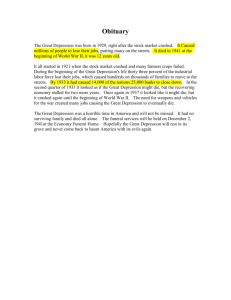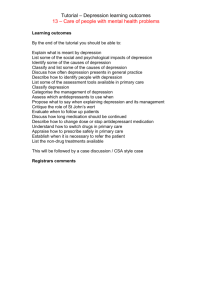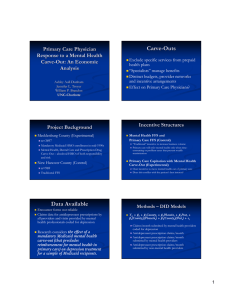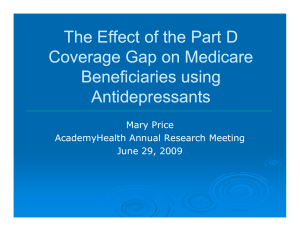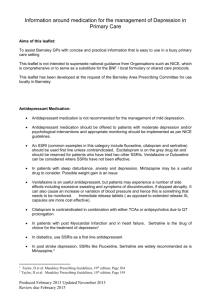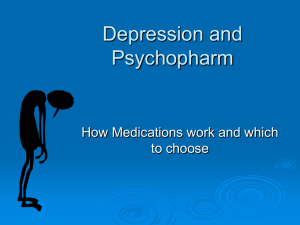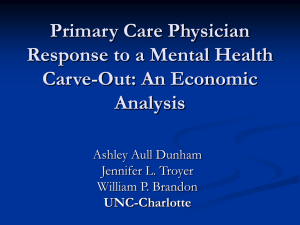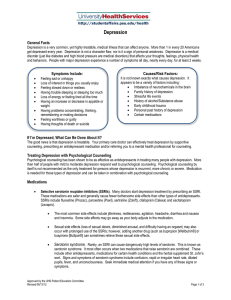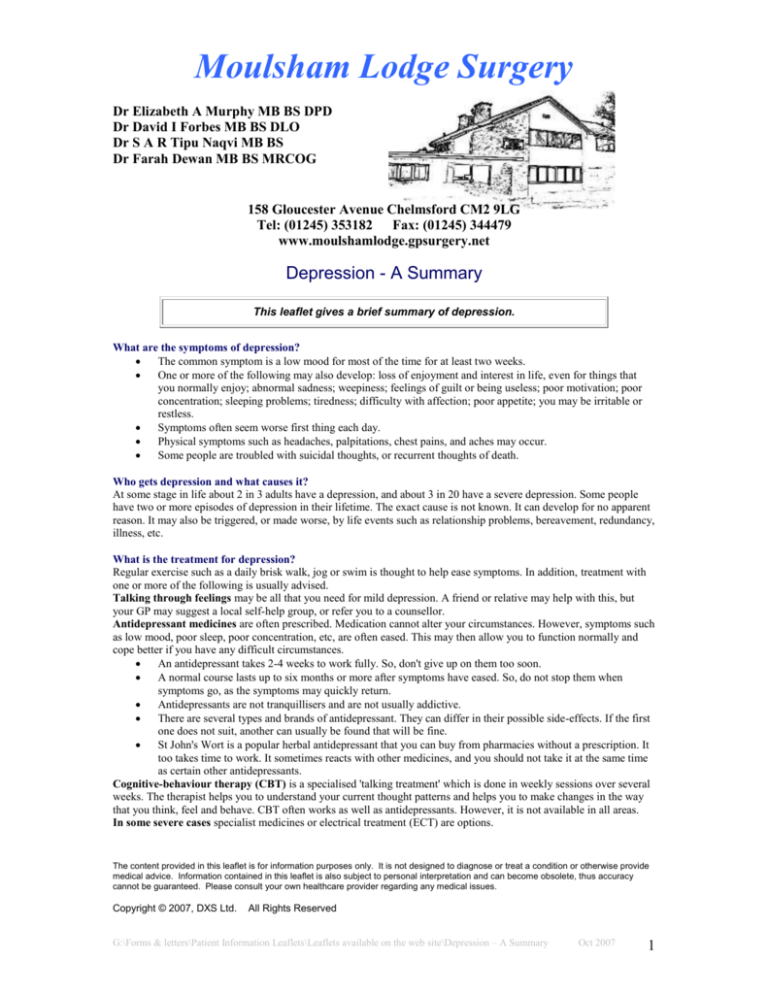
Moulsham Lodge Surgery
Dr Elizabeth A Murphy MB BS DPD
Dr David I Forbes MB BS DLO
Dr S A R Tipu Naqvi MB BS
Dr Farah Dewan MB BS MRCOG
158 Gloucester Avenue Chelmsford CM2 9LG
Tel: (01245) 353182 Fax: (01245) 344479
www.moulshamlodge.gpsurgery.net
Depression - A Summary
This leaflet gives a brief summary of depression.
What are the symptoms of depression?
The common symptom is a low mood for most of the time for at least two weeks.
One or more of the following may also develop: loss of enjoyment and interest in life, even for things that
you normally enjoy; abnormal sadness; weepiness; feelings of guilt or being useless; poor motivation; poor
concentration; sleeping problems; tiredness; difficulty with affection; poor appetite; you may be irritable or
restless.
Symptoms often seem worse first thing each day.
Physical symptoms such as headaches, palpitations, chest pains, and aches may occur.
Some people are troubled with suicidal thoughts, or recurrent thoughts of death.
Who gets depression and what causes it?
At some stage in life about 2 in 3 adults have a depression, and about 3 in 20 have a severe depression. Some people
have two or more episodes of depression in their lifetime. The exact cause is not known. It can develop for no apparent
reason. It may also be triggered, or made worse, by life events such as relationship problems, bereavement, redundancy,
illness, etc.
What is the treatment for depression?
Regular exercise such as a daily brisk walk, jog or swim is thought to help ease symptoms. In addition, treatment with
one or more of the following is usually advised.
Talking through feelings may be all that you need for mild depression. A friend or relative may help with this, but
your GP may suggest a local self-help group, or refer you to a counsellor.
Antidepressant medicines are often prescribed. Medication cannot alter your circumstances. However, symptoms such
as low mood, poor sleep, poor concentration, etc, are often eased. This may then allow you to function normally and
cope better if you have any difficult circumstances.
An antidepressant takes 2-4 weeks to work fully. So, don't give up on them too soon.
A normal course lasts up to six months or more after symptoms have eased. So, do not stop them when
symptoms go, as the symptoms may quickly return.
Antidepressants are not tranquillisers and are not usually addictive.
There are several types and brands of antidepressant. They can differ in their possible side-effects. If the first
one does not suit, another can usually be found that will be fine.
St John's Wort is a popular herbal antidepressant that you can buy from pharmacies without a prescription. It
too takes time to work. It sometimes reacts with other medicines, and you should not take it at the same time
as certain other antidepressants.
Cognitive-behaviour therapy (CBT) is a specialised 'talking treatment' which is done in weekly sessions over several
weeks. The therapist helps you to understand your current thought patterns and helps you to make changes in the way
that you think, feel and behave. CBT often works as well as antidepressants. However, it is not available in all areas.
In some severe cases specialist medicines or electrical treatment (ECT) are options.
The content provided in this leaflet is for information purposes only. It is not designed to diagnose or treat a condition or otherwise provide
medical advice. Information contained in this leaflet is also subject to personal interpretation and can become obsolete, thus accuracy
cannot be guaranteed. Please consult your own healthcare provider regarding any medical issues.
Copyright © 2007, DXS Ltd.
All Rights Reserved
G:\Forms & letters\Patient Information Leaflets\Leaflets available on the web site\Depression – A Summary
Oct 2007
1




